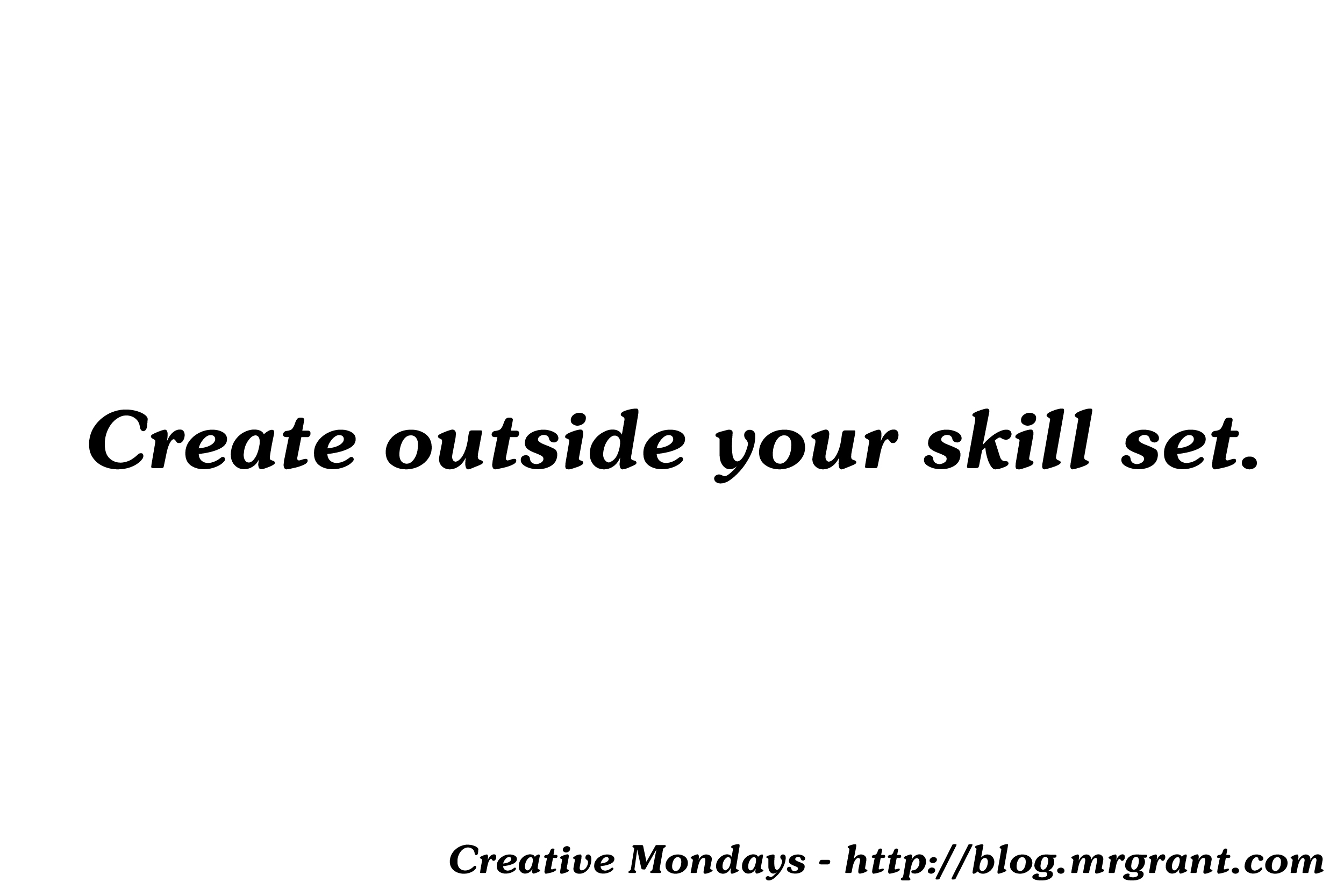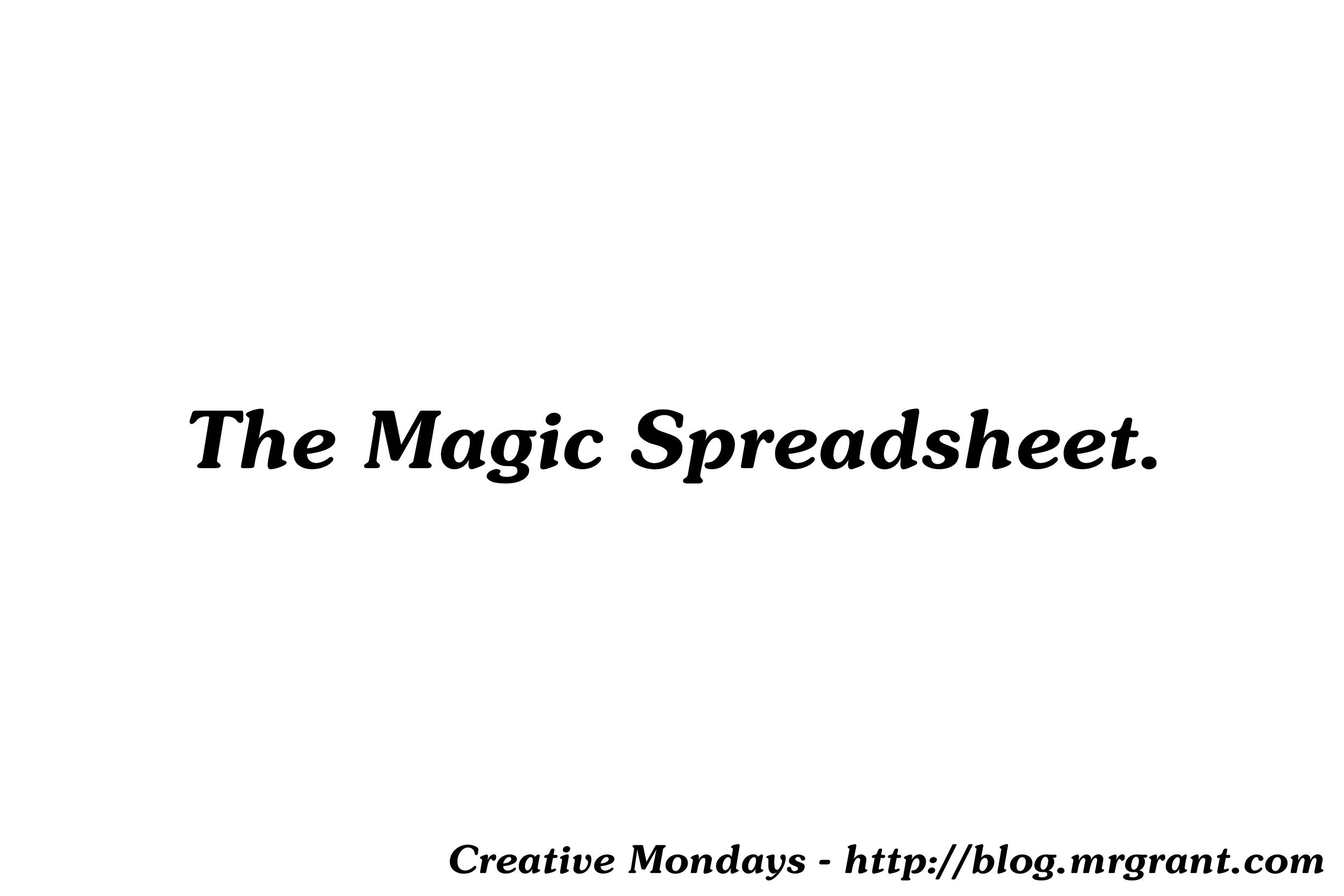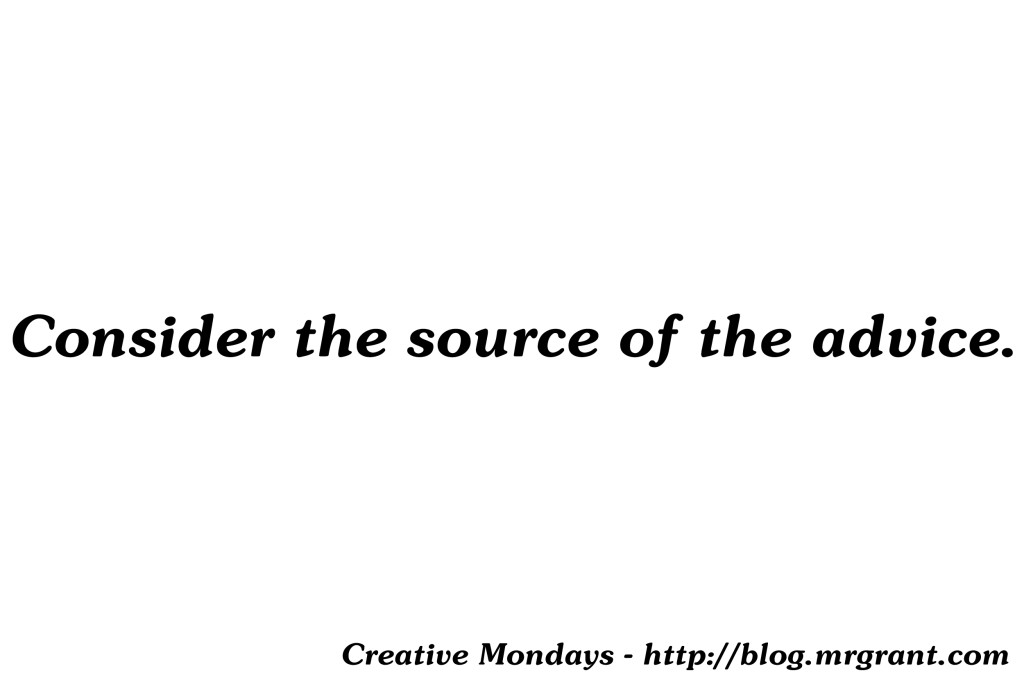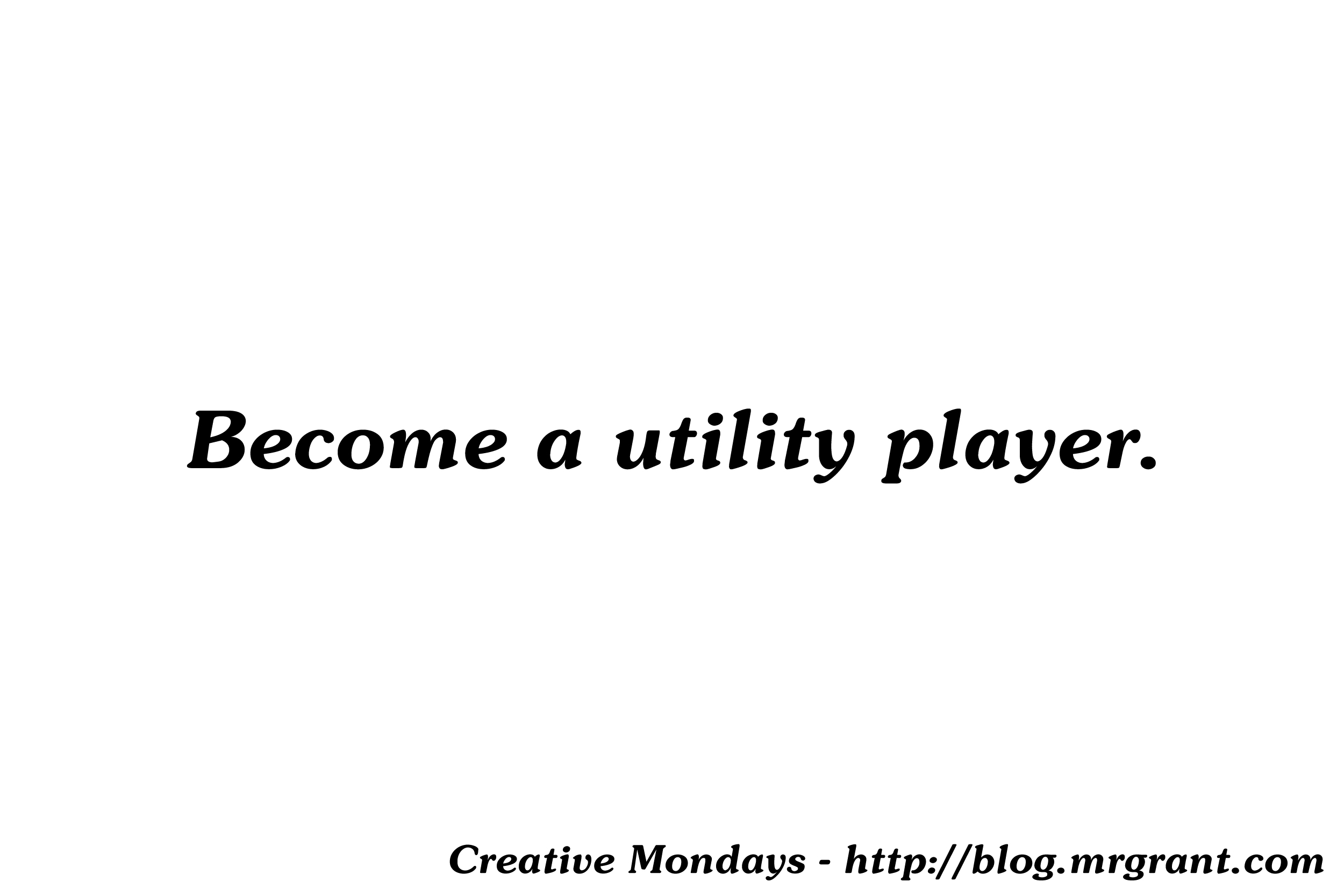Tag: artists
Creative Mondays #016 – Become a utility player.
Here’s another aspect of creativity that I believe is important. That is being a utility player. It’s a sports term and it means someone who is able to play many different positions competently. So, in you art and your creativity, you should strive to become a utility player. I’ll admit this concept may not apply to all fields of creativity, but I think it’s generally a good rule to have in life. The concept is, be good at many different aspects of your field so those in charge have a ton of options to plug you in anywhere. This will show that you can really do anything and it will give you more opportunities to make money.
I first stumbled upon this idea when I started doing my comedy songs at open mic nights in San Francisco. I was a young comedy songwriter who just started going to comedy open mics to play my songs. I started with comedy open mice because I was singing comedy songs, but at the first ‘mixed’ open mic I attended, an open in mic where there was comedy and music and poetry, I realized I could start going to strictly music open mice as well. I found I’d do pretty well at either comedy open mice or music open mice because my act was so different from what else was going on that night. At comedy open mice I stood out because I did funny songs where everyone else was doing straight stand up. At music open mice I stood out because I was doing funny songs when everyone else was doing serious straight songs. This discovery led me to being booked on all sorts of shows because I could fit in with whatever else was going on on the bill. I learned to be a utility player, fit in as many different places you can. You’ll get booked more.
And don’t worry about bing someone who’s just starting out. I think that’s the best time to become a utility player. You aren’t pigeon holed into just being able to do one thing. This concept has really hit home with my work with Puppet Up! Uncensored. When it comes to Puppet Up! I try to be the best utility player I can be and I started the moment I began working with the company. When I was strong enough to do my first shows, I eagerly learned the part in the opening and closing numbers I was in. I learned it to the best of my ability. The next time I was asked to be in a show, they put me in a completely different part in the opening and closing. Instead of complaining, I shut up and learned it and did it to the best of my ability. Next time I was asked to go into another slot and I did it gratefully and willingly. Now there are three different spots in the opening where I can be plugged in. (And I’ve been working on a fourth on my own.)
In the show we have two recreations, I’ve Grown Accustomed To Your Face and Java. When I was asked to learn the spot of Demon Head in Face, I jumped at it. Then I was asked to try out Big Java in Java. Again, no hesitation, I jumped on it. Then I was asked if I wanted to try Lady Singer in Face. You’d better believe I said yes. Same thing with using the Henson Digital Puppetry Studio in that segment of the show. I’ve never been trained on it officially but I’ve fooled around with it enough to be able to do a passable job, so now I can be plugged in there. On top of all this, I was once asked to host the show. A big task, but instead of waffling and saying I was unsure, I shut up, said yes, and did it to the best of my ability. I did a passable job and now have been asked to host the show several times now. By saying yes I created yet another spot in the show I could be plugged in.
All this saying yes came to a head recently where at one of our shows, a performer became ill moments before we started. After a bit of nervousness about this the show worked, Patrick asked who could do certain parts of the show. I was able to say test to just about everything and was able to perform many different roles. I wasn’t really nervous because they were all roles I’d played before and it was a true testament to becoming a utility player.
By eagerly and happily becoming a utility player, you will open yourself up to many more opportunities rather than just specializing on one thing.
—
Are you a utility player? Tell us about where you can be plugged in to many different spots in your field in the comments below!
Creative Mondays #015 – Create outside your skill set.

As an artist, you probably have many areas of art you are comfortable working in and they probably all compliment each other. Looking at my work I’d say my strength is the written word. Writing something that will become something else. Over 150 episodes of Dr. Floyd (some co-written, but most were from my head). The episodes of Did This Happen?, Thunder Crester, The Tales of Deputy Guppy, etc.. And all the projects that never made it anywhere or saw the light of day (at least not yet) Time Skippers, The Cauldron of Hate, The Untitled Western story, Sign Force One and countless others. When I look at my strengths as an artists, I say putting ideas down onto paper (or screen) and forming them into a mildly entertaining story, is probably my biggest strength. Yes, I do comedy, act, improvise and do puppets but my skills in those aren’t as honed as they are in creating stories. Maybe I’m just more comfortable putting ideas down on paper.
Today I want to talk about creating art outside of your area of expertise. Breaking through that ‘comfortable’ barrier and making yourself uncomfortable by creating art in a different medium. If you’re a painter, write. If you’re an actor, dance. Step into another realm of art. I think this can be an extremely valuable experience for many reasons.
The first reason is that it will give you different ways to look at creating. If you’re a painter and you try sculpting or modeling out of clay, you’re going to apply the practices you’ve learned from painting to the sculpting. Being neither a painter or sculptor, I would assume that some of those practices will work and others will not, forcing you to think differently about how you will achieve your creative goals on that project.
I have tried to do this at several times in my creative endeavors and it has always helped me, I feel, become a better artist. I have an iPad and I purchased the super popular app, Paper by Fifty Three when it came out. Playing around with the tools on it really clicked with me and I just began drawing daily. I’ve always enjoyed drawing in the past and would occasionally do it. Deputy Guppy was born out of a comic book I drew in high school. I was always vaguely aware though that my drawings aren’t really that spectacular. On the Paper app though I think my drawings turn out a little better and seeing that result has really inspired me to draw more. This has made me to think differently. How can I capture a feeling, a saying, a song lyric in just a picture? With no words? It forces me to retrain my mind to figure out a way to communicate what I want to say in picture only. This translates back into my writing as well. It makes me think of different ways to say the same idea and try to capture a picture in words.
Another thing creating outside my area of expertise has done is sparked ideas. I have so many random drawing doodles, that have fired up ides for stories in my mind. I started drawing these little figures that I called Dots. Just splotches of paint with arms and legs. Simple, easy to draw. But creating them fueled my story mind and made me think of lots of different stories I could create with these characters and their world. Will I ever do anything with them? Maybe, maybe not. But the simple act of creating outside my strengths inspired me.
Finally, creating outside your area of comfort may lead you into a great idea to combine the comfortable with the uncomfortable. Going back to the painter/sculptor idea above. What if the painter found a way to use sculpture in his or her paintings and came up with a completely new idea they’d never thought of before. I have often wondered how I could combine my writing and stories into some multi media piece that melds to the too. I know you’re saying, “Yeah, Grant, a book with pictures.” But I’m talking maybe a podcast with pictures. Or a story written into the designs of a drawing. Yes, it’s been done before, but not by me. That inspires me.
So take a chance. Get uncomfortable. Try something new and outside your area of expertise. Who knows where it’ll lead?
—
Do you practice art outside your comfort zone? If so, does it help your main passion? If not, what new experiment will you try? Let me know in the comments below!
Creative Mondays #014 – The Magic Spreadsheet

Back toward the end of 2012, I heard about a thing called ‘The Magic Spreadsheet.’ I heard about it on Mur Lafferty’s podcast I SHOULD BE WRITING which is a podcast that, if you have any sort of passion for writing, you should be listening to. Mur Rocks. Anyway, she spoke about how the Magic Spreadsheet had helped her write more than any other tool or practice she had found.
In a nutshell, The Magic Spreadsheet, created by a colleague of Mur’s names Tony Pisculli, is a simple tool that helps you get into the practice of writing everyday. The starting goal is 250 words per day. Roughly one page of typed text. It should take you about 15 minutes. On the first day you write 250 words you enter that number on the Magic Spreadsheet and you get one point. Now the next day if you write 250 words and you enter in that number, you get one point for writing 25 words and then another point because you’ve created a link in your chain by writing two days in a row. The next day you would get one point for the 250 words and TWO points for two links in a chain and so on. There’s more ways to earn points, but those are the basics.
Since I discovered The Magic Spreadsheet, I have written consistently, only missing one day when I was in the backwoods of Oregon and realized after being in bed for 20 minutes that I’d forgotten to write. Despite that small break in my chain, I have written a total of 122,885* words and, except for that day mentioned earlier, have written every single day since. It has been the most consistent I’ve been at writing and working on my writing and I have turned out a lot of words. Not all of those words were fantastic, but it doesn’t matter as much as the learning of the discipline of sitting and writing.
Now I know you may be asking, “So…you get points? That’s it?” And the answer is, yes. That’s it. There are leader boards where you can see how your word count of chain length compares against others, so there is a small ‘competitive’ factor that can play into it. Outside of that however, you don’t ‘get’ anything. I will say that it really works for me.
Everyday I have it in my head, “I have to do my words. I can’t break my chain (again).” And when the day is done, I have done my words. I have even been pushing myself to do more than the 250 words, usually going over 500. Somedays it’s very, very hard to get the words done. I lack energy to do them, I feel I have no good ideas to put down on paper or eleven other excuses pop into my head, but I get them done because I don’t want to break my chain again.
The other thing about The Magic Spreadsheet is if you, unfortunately, miss a day…nothing happens. You just start back up the next day and, if you’re like me, you will be doubly set on not breaking that chain again.
Now The Magic Spreadsheet may not be your thing or it may not work for you’re art and that’s fine. But you can do something similiar. Make a goal for yourself to do something creative everyday. Something easily obtainable (250 words a day, 10 sketches, 20 minutes of instrument practice, etc.) and then give yourself a point, or an X on a calandar, or a gold star each day you do it. After a week or so of practicing this, you may just get into the groove of doing so and you’ll keep up your creative habit because you want to get those points or x’s or gold stars.
—
What motivation tools do you use to motivate you to get things done?
*This post was written some month ago. Despite a few more breaks in the chain, as of February 28, 2014, I have written a total of 282,248 words. All thanks to The Magic Spreadsheet.
Creative Mondays #013 – Consider the source of the advice.

I talked earlier in this blog about keeping your plans secret. Don’t tell others what you are doing because they will taint your ideas with phrases like, “You know what you should do instead?” But, there are times in your creative career where you will solicit advice from others. That is perfectly fine as long as you keep one thing crystal clear in your head: consider the source.
We started working on Dr. Floyd way back in 1999. It wasn’t a podcast back then, it was a public access TV show. Even though we were limited by the technology of the time, the whole creative world seemed wide open in terms of what we were able to do. While we were working on the show I began cobbling together a script for what, I dreamed someday, would become a Dr. Floyd feature film. Look, it’s Hollywood, everyone has a script in a drawer somewhere.
Before it was finished I gave it to someone to read and this person came back telling me that I didn’t write the script properly. Not in that it was formatted incorrectly, but that I was “being too descriptive in the details” and that I was, “writing out things that should be left up to the director.” Hearing this bummed me out and I never finished the script because I felt I was doing it all wrong.
Years later, I was thinking about that script and about what that person had said and then I realized that the person who gave me that advice had written a script but never had one produced (outside of doing it for himself). So, what right did he have to tell me I was doing something right or wrong when he’s never done it himself? How did he know I was adding details that would be left up to the director?
Consider the source.
If you’re trying to do something and you get advice, consider who is giving you that advice. If you’re trying to publish a book, is the person giving you advice a published author? If you’re trying to get your first art showing, is the person giving you the advice and artist who has had gallery showings before? If you’re writing a script and someone who has never had a script produced is telling you you’re doing it wrong, should you listen to them? No.
Now, the flip side to that is that if the person HAS done what you want to do, listen to their advice.
I wrote a novella a few years ago and a friend of mine, who is a published author, graciously offered to read it. This person then pointed out several things that could be changed to make the novella read better and I took that person’s advice because they had done what I want to do.
Consider the source. Who is giving you this advice? Have the done what you’re trying to do?
In the end, it is up to you to take ANY advice you are given. Whether it be from someone who has done what you’re trying to do or someone who hasn’t. Only take the advice if it feels right for you and what you are working on.
—
Do you consider the source when getting advice? Has someone with no experience in what you are trying to do ever given you advice that derailed you creative goals? How did you deal with it? Let me know in the comments below!
